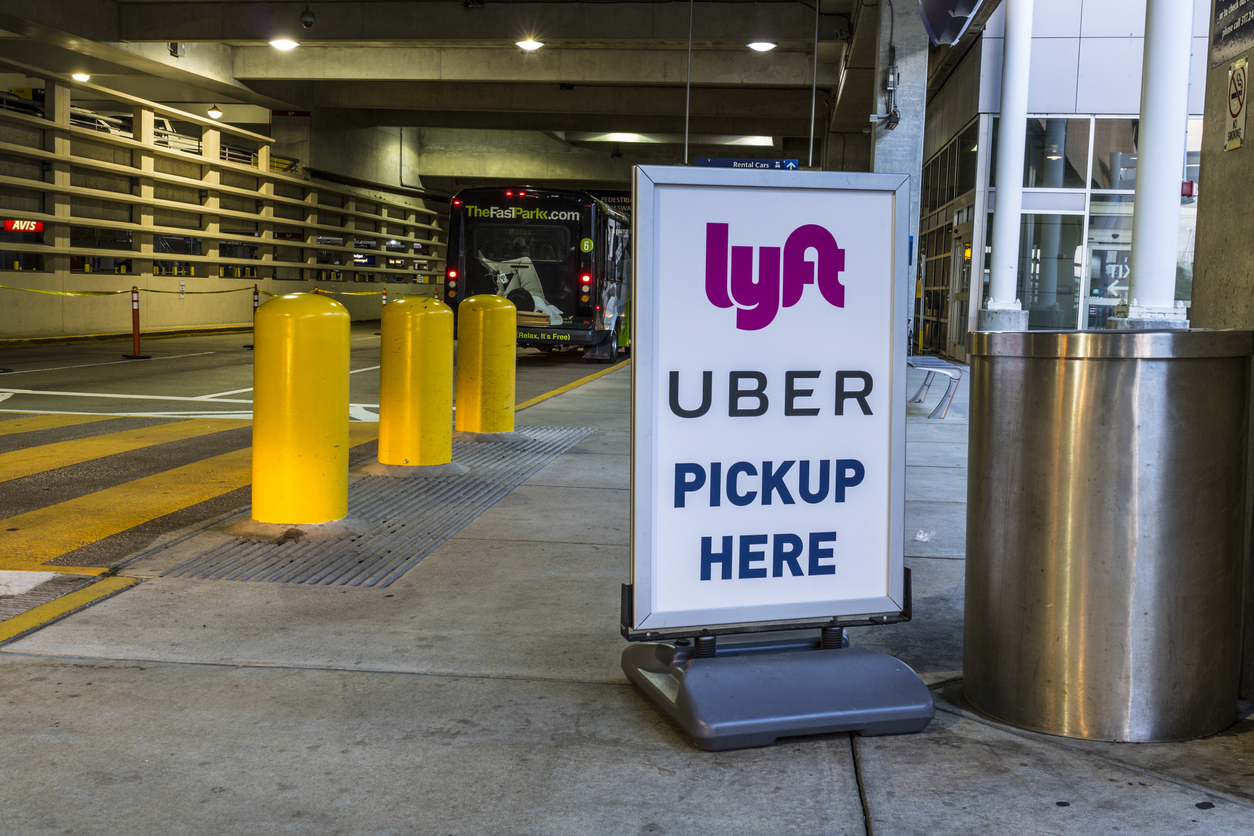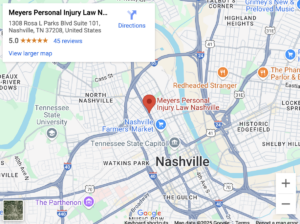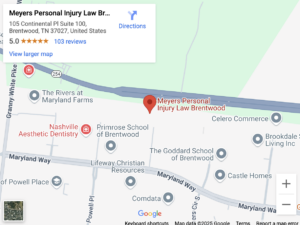Meyers Personal Injury Law | July 2, 2025 | Car Accidents

Uber and Lyft offer convenient transportation throughout Nashville, making them a top choice for those seeking quick, hassle-free travel. If you’re considering becoming a rideshare driver—or simply want to better understand how these services operate—it’s essential to know the rules and requirements that apply to both drivers and their vehicles.
These regulations are shaped not only by the companies but also by state and local laws. This guide will break down the key driver and vehicle requirements for Uber and Lyft in clear, straightforward terms.
Whether you’re exploring job opportunities or have been involved in a rideshare-related car accident, having this knowledge is crucial.
Who Can Drive for Uber and Lyft in Nashville?
To drive for Uber or Lyft, you must meet a few basic personal requirements. These are fairly similar for both companies. You must be at least 21 years old. You also need to have a valid driver’s license for the state of Tennessee and at least one year of driving experience.
If you’re under 25 years old, some platforms may require three years of experience. A clean driving record is very important, as both companies will run a background check. Background checks are done to look for any serious driving violations, violent crimes, or DUI convictions. If anything concerning is found, your application will likely be denied.
Both Uber and Lyft want their riders to feel safe, so they are strict about who can drive.
Vehicle Requirements: What Kind of Car Can You Use?
Not just any car can be used to drive for Uber or Lyft. The vehicle must meet certain standards, which are in place to keep riders safe and comfortable. First, the car must be in good condition. This means no major damage, missing parts, or safety issues.
The car must have four doors and be able to seat at least four passengers, not including the driver. Two-door cars are not allowed. In most cases, the vehicle must be in the 2008 model or newer. However, in Nashville and Davidson County, the requirements can vary slightly, so it’s important to check with local regulations.
Your car must also pass a vehicle inspection. Uber and Lyft both require this inspection before you start driving and on a regular basis afterward. This check looks at things like brakes, tires, lights, and seatbelts to make sure everything is working correctly. A car used for Uber or Lyft must also be registered and insured.
You don’t have to be the owner of the car, but you do need to be listed on the insurance policy, and the vehicle must be registered in your name or someone else’s who is aware that you’re using it for rideshare driving. Overall, rideshare companies expect your vehicle to be safe, clean, and dependable.
Insurance Requirements for Rideshare Drivers
Insurance is a key part of driving for Uber and Lyft. Regular car insurance is not enough when you’re using your vehicle to drive passengers for money. That’s why both companies have special insurance policies that cover you while you’re using the app.
Tennessee law requires all drivers to carry a minimum level of insurance, and Uber and Lyft go above that. However, if you’re in an accident while the app is on, your personal insurer might not cover you unless you have rideshare coverage added to your policy. This can create gaps in coverage if you’re not careful.
It’s always a smart idea to talk with your insurance company before driving for a rideshare service. This can help you avoid surprises in the event of an accident.
Special Nashville Rules for Uber and Lyft Drivers
Nashville and Davidson County have a few local rules that rideshare drivers must follow in addition to the company and state requirements. The city also checks to make sure rideshare drivers are registered with the companies and meet inspection and insurance requirements.
Nashville has had issues with unlicensed or unsafe drivers in the past, so local officials take this seriously. Drivers are also expected to keep their vehicles clean and professional. Complaints from riders can lead to temporary or permanent suspension from the platform.
By following both company and city rules, you help keep everyone on the road safe and avoid penalties.
What Happens if a Driver Doesn’t Follow the Rules?
If an Uber or Lyft driver fails to meet requirements, the company can deactivate their account. This means the driver won’t be allowed to pick up passengers through the app anymore. Deactivations can happen for reasons like failing a background check, having a serious accident, or receiving too many complaints.
Drivers who do not meet insurance or vehicle requirements may also be fined or face legal consequences if they are caught driving illegally. In Nashville, this could include being banned from picking up at the airport or being ticketed by local police.
Rideshare and Staying Safe
Whether you’re thinking about driving for Uber or Lyft or you’ve been in an accident with a rideshare vehicle, it’s important to know the rules. These requirements are designed to protect everyone—drivers, riders, and others on the road.
Drivers must meet age, license, and background check standards. Their cars must be safe, insured, and inspected. Both the companies and the city of Nashville have rules in place to make sure rideshare travel is safe and fair.
By understanding these guidelines, you can make better decisions and protect your rights, especially if you’re ever involved in a rideshare accident. If you have questions or have been in an accident, contact Meyers Personal Injury Law for help.
Contact Our Nashville Personal Injury Law Firm Today at Meyers Personal Injury Law
If you were injured in an accident in Nashville or Brentwood and need legal help, contact our Nashville personal injury lawyers at Meyers Personal Injury Law to schedule a free case review today.
Meyers Personal Injury Law Nashville
1308 Rosa L Parks Blvd Suite 101,
Nashville, TN 37208
(615) 258-9000

Meyers Personal Injury Law Brentwood
105 Continental Pl Suite 100,
Brentwood, TN 37027
(615) 258-9000
About the Author Chad Meyers

Chadwick D.G. Meyers is the founding attorney of Meyers Personal Injury Law. He earned his J.D. from the Nashville School of Law and focuses his practice on serious personal injury cases involving car accidents, wrongful death, funeral home negligence, and more.
Chad is frequently consulted by attorneys nationwide on complex claims and has been recognized by The National Trial Lawyers and other legal organizations. Click here to view some of the successful case results Chad has achieved for his clients.



